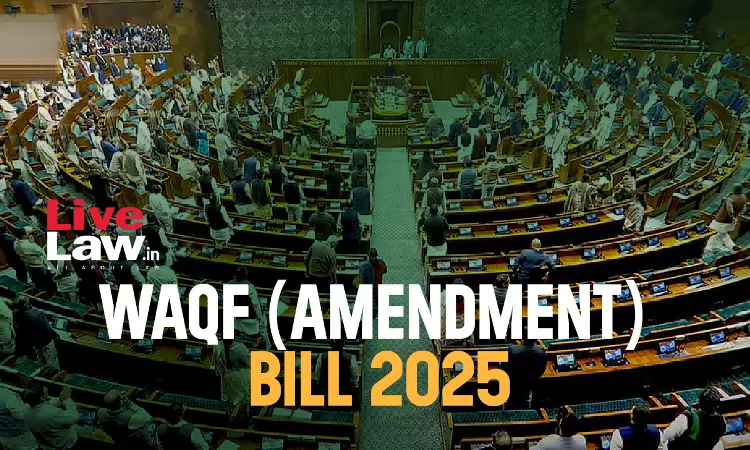Lok Sabha Passes Waqf (Amendment) Bill 2025 After 14 Hours Of Debate
Gursimran Kaur Bakshi
3 April 2025 12:50 AM IST

Next Story
3 April 2025 12:50 AM IST
After an intense debate lasting nearly 14 hours, the Waqf (Amendment) Act, 2025 was passed in the Lok Sabha at past midnight at about 2 AM. The Bill was tabled in the Lok Sabha yesterday (April 2) by Minister of Parliamentary Affairs Kiren Rijiju. The legislation was passed with 288 votes in favour and 232 votes against it. Waqf is the permanent dedication by any person for any purpose...
